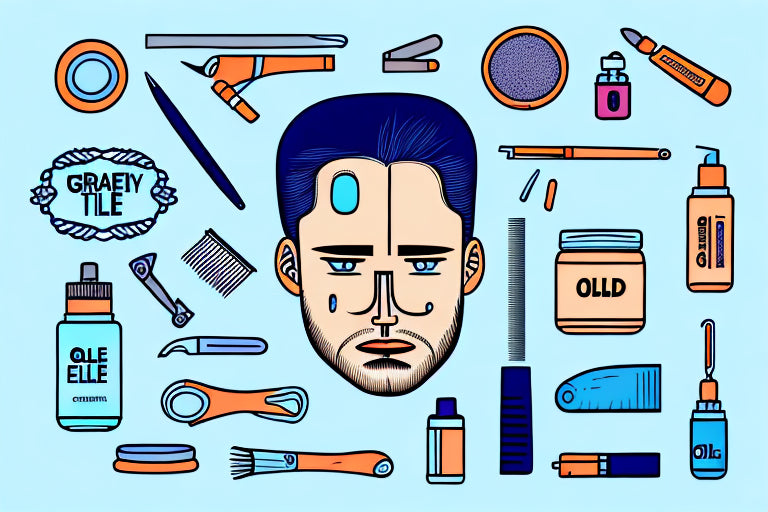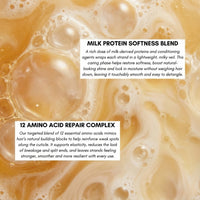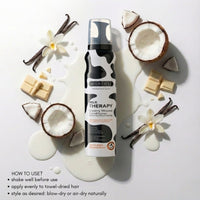How to Treat an Oily Scalp and Keep It Healthy
Posted by MORFOSE COSMETICS

How to Treat an Oily Scalp and Keep It Healthy
Do you struggle with an oily scalp? If so, you're not alone! Many people face the same problem, but there are ways to treat it and even keep your scalp healthy. This article will explore the causes of an oily scalp, the symptoms to watch out for, and some home remedies that you can try.
Understanding the Causes of an Oily Scalp
An oily scalp can be frustrating to deal with and can lead to a greasy, unmanageable appearance. While it's a common issue, there are several factors that can contribute to an oily scalp.
In this article, we will explore the various causes of an oily scalp and provide tips on how to manage it effectively.
Overactive Sebaceous Glands
Sebaceous glands are located on the scalp and are responsible for producing sebum, which is a natural oil that helps to moisturize the hair and scalp. While sebum is essential for healthy hair, overactive sebaceous glands can lead to an oily scalp.
Factors that can contribute to overactive sebaceous glands include genetics, stress, and certain medications. If you have a family history of oily hair, you may be more prone to an oily scalp. Stress can also stimulate the sebaceous glands, leading to increased sebum production. Additionally, certain medications, such as birth control pills, can affect hormone levels and cause the sebaceous glands to produce more sebum.
Hormonal Imbalances
Hormonal imbalances can also cause an oily scalp. This is because certain hormones, such as testosterone, can stimulate the sebaceous glands to produce more sebum.
Women may experience hormonal imbalances during pregnancy, menopause, or their menstrual cycle. During these times, hormone levels can fluctuate, leading to changes in sebum production. Men may also experience hormonal imbalances due to medical conditions such as hypothyroidism or hyperthyroidism.
Poor Hair Care Routine
Your hair care routine can also contribute to an oily scalp. For example, if you don't wash your hair regularly, the sebum can build up on the scalp, leading to an oily appearance.
Using too many styling products, such as gels and hairsprays, can also contribute to an oily scalp. These products can build up on the scalp and weigh down the hair, making it look greasy. Additionally, using hot styling tools such as flat irons and curling irons can stimulate the sebaceous glands, leading to increased sebum production.
Environmental Factors
Environmental factors, such as humidity and pollution, can also make your scalp oily. When the air is humid, it can cause the sebaceous glands to produce more sebum. Additionally, pollution can clog the pores on the scalp, leading to an oily appearance.
To combat these environmental factors, it's important to keep your hair and scalp clean. Use a gentle shampoo to wash your hair regularly, and consider using a clarifying shampoo once a week to remove any buildup. Additionally, wearing a hat or scarf can protect your hair and scalp from environmental pollutants.
By understanding the causes of an oily scalp and taking steps to manage it effectively, you can achieve healthy, manageable hair.
Identifying the Symptoms of an Oily Scalp
There are several symptoms to watch out for if you suspect you have an oily scalp. These include:
Greasy Hair
One of the most common symptoms of an oily scalp is greasy hair. Your hair may look limp and oily even after washing it. This can be frustrating as it can make your hair look dirty and unattractive. It can also make styling your hair difficult as it tends to clump together and lose its shape quickly.
To combat greasy hair, it is important to use a shampoo that is specifically designed for oily hair. These shampoos contain ingredients that help to remove excess oil from the scalp and hair, leaving it looking clean and refreshed. It is also important to avoid using heavy hair products such as gels and serums, as these can contribute to the build-up of oil on the scalp.
Itchy Scalp
An oily scalp can also cause itching. This is because the sebum can clog the hair follicles, leading to irritation on the scalp. This can be uncomfortable and can lead to scratching, which can further damage the scalp and hair.
To relieve an itchy scalp, it is important to keep the scalp clean and free from excess oil. Using a gentle shampoo and conditioner can help to remove any build-up of oil and dirt, while also soothing the scalp. It is also important to avoid scratching the scalp, as this can lead to further irritation and damage.
Dandruff
Dandruff, or flaking of the scalp, can also be a symptom of an oily scalp. This occurs when the sebum on the scalp mixes with dead skin cells, leading to the white flakes that you see on your clothes or hairbrush. Dandruff can be embarrassing and can make you feel self-conscious.
To treat dandruff caused by an oily scalp, it is important to use a shampoo that is designed to treat dandruff. These shampoos contain ingredients such as salicylic acid and coal tar that help to exfoliate the scalp and remove any build-up of oil and dead skin cells. It is also important to avoid using hot water on the scalp, as this can further irritate the skin and lead to more dandruff.
Hair Loss
Finally, an oily scalp can also contribute to hair loss. This is because the excessive sebum can clog the hair follicles, leading to hair breakage and loss. This can be a serious issue, especially if you are already experiencing hair loss due to other factors such as genetics or hormonal changes.
To prevent hair loss caused by an oily scalp, it is important to keep the scalp clean and free from excess oil. Using a gentle shampoo and conditioner can help to remove any build-up of oil and dirt, while also nourishing the hair and scalp. It is also important to avoid using harsh chemicals or heat styling tools on the hair, as these can further damage the hair and scalp.
Home Remedies for Oily Scalp
If you have an oily scalp, it can be frustrating to deal with. Not only does it make your hair look greasy, but it can also lead to other issues, such as dandruff and an itchy scalp. Fortunately, there are several home remedies that you can try to help manage it.
Apple Cider Vinegar Rinse
One of the most effective home remedies for an oily scalp is an apple cider vinegar rinse. Apple cider vinegar has antibacterial and antifungal properties that can help to balance the pH of the scalp and reduce the oiliness. To make an apple cider vinegar rinse, mix one part apple cider vinegar with two parts water. After shampooing your hair, pour the mixture over your scalp and hair. Massage it in for a few minutes, then rinse it out with cool water.
Tea Tree Oil
Tea tree oil is another effective remedy for an oily scalp. It has antimicrobial properties that can help to reduce the oiliness and fight dandruff. To use tea tree oil, mix a few drops with a carrier oil, such as coconut oil. Massage the mixture into your scalp and leave it on for 30 minutes before shampooing your hair.
Lemon Juice
Lemon juice is a natural astringent that can help to regulate the oil production on the scalp. To use lemon juice, squeeze the juice from one lemon and mix it with one cup of water. After shampooing your hair, pour the mixture over your scalp and hair. Massage it in for a few minutes, then rinse it out with cool water.
Aloe Vera
Aloe vera has anti-inflammatory properties that can help to soothe an itchy scalp and reduce the oiliness. To use aloe vera, apply the gel directly to your scalp and leave it on for 30 minutes before washing your hair.
It's important to note that while these home remedies can be effective for managing an oily scalp, they may not work for everyone. It's also important to identify the underlying cause of your oily scalp, which could be anything from genetics to hormonal changes. If you're experiencing persistent oiliness or other scalp issues, it's best to consult with a dermatologist or healthcare provider.



